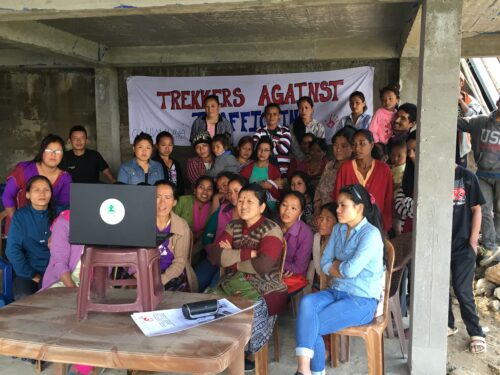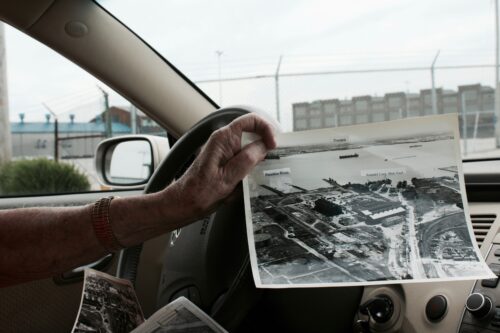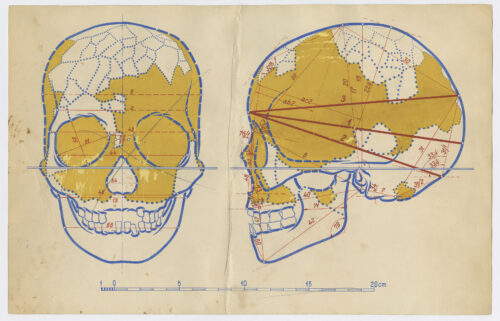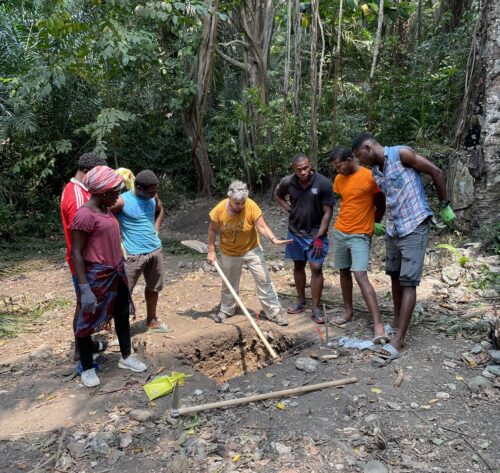Trump’s Slogan: More About the “Make” Than the “Great”

President Donald Trump’s campaign slogan “Make America Great Again” has provoked a lot of debate in the media about “greatness.” When was America great? What made it great? Who was it great for?
But maybe the commentators have been focusing on the wrong thing.
Perhaps what electrifies many Americans about the president’s four-word rallying cry is not the splendor of greatness but the appeal of reinvigorating America’s can-do spirit of making. As anthropologists, we think this subtle switch in emphasis is important.
Grammatically, Trump’s “make” is an imperative. It is a command—a clarion call to fix a broken present and rebuild our national self-esteem. “Make” does not embrace the tame drudgery of service economy life. Rather, it gives those frustrated with screen-staring, or left out of the information economy entirely, a concrete mission. It is, in short, an appeal to build something “real.”
For many Americans, there is a direct relationship between the making of things and the ideal of the self-made man (or woman) that once drove the American dream. Such rhetoric invokes the idea that being American means building America: rolling up one’s sleeves and pulling coal out of the ground, manufacturing a sturdy car, laying down a railroad track, or even building a real estate empire. The mythos of practical action is enshrined in the country’s philosophical tradition: Thinkers such as social reformer John Dewey, psychologist William James, and logician Charles Sanders Peirce were all pragmatists who focused on problem solving and action.
This is why Trump’s call to “restart the engine of the American economy”—central to his first address to Congress—energized so many of his supporters. Many media outlets temporarily warmed to his “presidential tone” after that speech, even though, as University of California, Berkeley public policy expert Robert Reich noted, it was “chock full of lies” on everything from healthcare premiums to illegal immigration rates to murder statistics.
The appeal to a can-do spirit is powerful. Doing or making something can increase happiness by preoccupying people’s attentions, eliminating boredom, or holding self-rumination at bay. As British anthropologist Tim Ingold has thoughtfully demonstrated, making has long been central to the human experience. But for many, opportunities to make and self-make feel increasingly out of reach. This is perhaps the root of the do-it-yourself artisan ethos of today’s maker movement, where people gather to quilt, weld, or assemble electronics, to help satisfy selves and build communities of like-minded people.
In a February commentary, American political economist Nicholas Eberstadt explained that if U.S. per capita gross domestic product had kept growing at its post-WWII rates, it would now be over 20 percent higher. For families, these numbers are tangible: The chances that a 30-year-old will earn a higher salary than his or her parents did at the same age has sunk from 86 percent in 1976 to 51 percent in 2016. Many have good reason to feel that the U.S. is on the wrong course, and to doubt that the dreams they labored for will be available to their children.
For his supporters, Trump’s gritty “make” is therefore a refreshing rebuttal to Obama’s professorial “think.” It mocks media elites’ polished prose, Hollywood celebrities’ pleas for ordinary Americans to include immigrants, and ivory-tower intellectuals who chastise privilege while embodying it. It frowns upon the vast increases in telemarketing, human resources, corporate law, public relations, financial services, and health- or academic-administration careers—anthropologist David Graeber calls these “bullshit jobs”—in which people labor away doing ostensibly “meaningless” things.
So yes, making can be good. But there is a serious problem with Trump’s brutish brand of making-without-thinking: It won’t work.
Consider the wall. It’s not clear that Trump’s proposed border wall would do much to discourage illegal immigration—the roughly 700 miles of barriers that already exist have done little to address it. Walls are passable: One can go over, under, or around them. As former Arizona Governor Janet Napolitano famously quipped, “You show me a 50-foot wall, and I’ll show you a 51-foot ladder.” Besides, a large proportion of individuals unlawfully present in the United States arrived by legal means and have simply overstayed their visas. Nevertheless, one of the most commonsense immigration-reform proposals—to revamp the country’s exit-tracking system—has never gained political traction. Perhaps that’s because it is too “thinky.”
In fact, building a border wall might even facilitate crossings. Federal officials have long depended on the desert’s hostile and unforgiving landscape to deter migrants, “essentially outsourcing border enforcement to nature,” according to anthropologist Jason De León. Building a wall requires paving roads to get heavy equipment to the border. It’s hardly a stretch to imagine that roads might make the remote terrain easier to navigate.
Similarly, rolling back environmental regulations won’t revive the industrial era. On the contrary, there’s evidence that greening can help the economy. And big military spending increases won’t necessarily inject life into the manufacturing sector; in the 21st century, far more jobs per dollar have been created through investment in health care and education than in defense. If we make without thinking, we surrender to a vision based on empty promises.
But Trump’s appeal to making is more nostalgic than forward-looking. And nostalgia—with its rose-tinted view of the past—is not firm footing for good policy. Trump, a self-professed maker, must know that sentimental longings for a lost golden age are shoddy foundations for construction. Before we set out to “make,” we ought to first quietly pause and think—carefully, critically, and empathetically.
The American story has always been more about the journey (making) than the destination (greatness). Trump has shrewdly tapped into that. But the picture he paints is largely devoid of substance. Making without thinking isn’t a bold, heroic strategy—it’s just a mindless one. If the U.S. pursues a making-without-thinking approach, the country will find itself traveling swiftly down a road to nowhere.



































